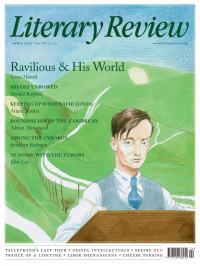Cal Revely-Calder
End of the Affair
Ties
By Domenico Starnone (Translated by Jhumpa Lahiri
Europa Editions 144pp £9.99
It starts, in 1974, with a girl (it always starts with a girl). Aldo and Vanda, youngish Neapolitans, have been married for twelve years. They have two children, Sandro (nine) and Anna (five), and a fair income from Aldo’s university job; they go on family trips to campsites and beaches. They’re models of everyday life. But when Lidia (nineteen) enrols on Aldo’s ‘economics and business’ course, his head is turned and he walks out of the family home. He’s away for four years – and then he comes back to Vanda. Lidia vanishes. The marriage goes on. They’re still together today.
This is the backdrop to Ties, Domenico Starnone’s thirteenth novel. It’s also its plot, which exists only as a sideshow. Yes, a con man steals some euros and a burglary seems to happen, but all the real action is decades past, since when everyone’s been trapped in its

Sign Up to our newsletter
Receive free articles, highlights from the archive, news, details of prizes, and much more.@Lit_Review
Follow Literary Review on Twitter
Twitter Feed
‘The Second World War was won in Oxford. Discuss.’
@RankinNick gives the question his best shot.
Nicholas Rankin - We Shall Fight in the Buttery
Nicholas Rankin: We Shall Fight in the Buttery - Oxford’s War 1939–1945 by Ashley Jackson
literaryreview.co.uk
For the first time, all of Sylvia Plath’s surviving prose, a massive body of stories, articles, reviews and letters, has been gathered together in a single volume.
@FionaRSampson sifts it for evidence of how the young Sylvia became Sylvia Plath.
Fiona Sampson - Changed in a Minute
Fiona Sampson: Changed in a Minute - The Collected Prose of Sylvia Plath by Peter K Steinberg (ed)
literaryreview.co.uk
The ruling class has lost its sprezzatura.
On porky rolodexes and the persistence of elite reproduction, for the @Lit_Review: